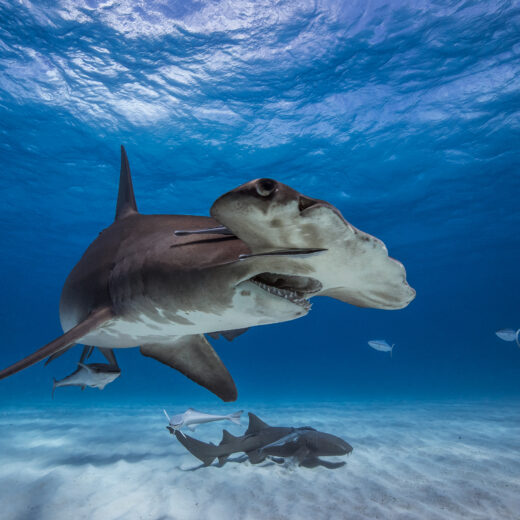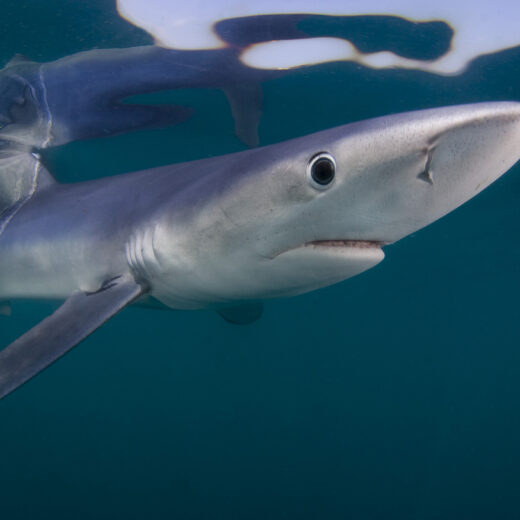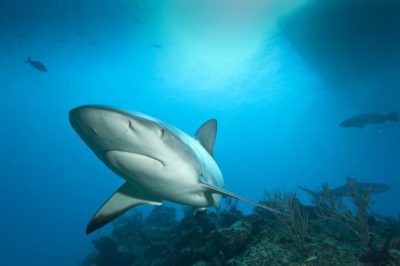
BY WILDAID
Over the past three decades, China’s seafood consumption has more than tripled, surpassing both Japan and the United States as the world’s largest consumer, producer and importer/exporter of fish and shellfish. High demand among a growing middle class also has fueled illegal fishing and smuggling of many protected marine species.
Guangzhou, the capital of Guangdong province in southern China, is a key port for seafood shipments, and a primary market for such products as manta ray gill rakers and shark fin. Local customs officers are tasked with inspecting a high volume of shipments at ports as well as surveilling markets for illegal products. To help them improve detections of illegal wildlife species, WildAid, the Wildlife Conservation Society and Guangdong Fisheries Law Enforcement recently co-hosted a training for 80 customs and enforcement officers in Guangzhou.
The main purpose of this training was to help agents quickly identify products from eight protected species, including manta gill rakers (known as peng yu sai), shark fin and the swim bladder of the totoaba — a critically endangered fish indigenous to Mexico’s Sea of Cortez. The totoaba swim bladders are smuggled from Mexico.
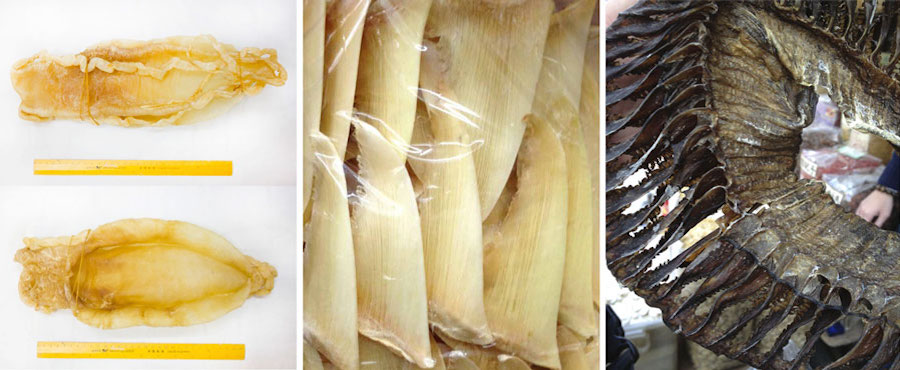

Gill nets used to catch totoaba are a major threat to another endangered marine animal: the vaquita, a small porpoise located in the Sea of Cortez’s northern waters. Experts estimate that fewer than 100 vaquita remain in the wild.
During the training, WildAid gave customs officers an overview of our manta campaign, which seeks to reduce consumer demand in Guangzhou for manta gill rakers, used in a so-called health tonic that contains unsafe levels of multiple toxic metals. We also helped to print a new brochure on shark identification.


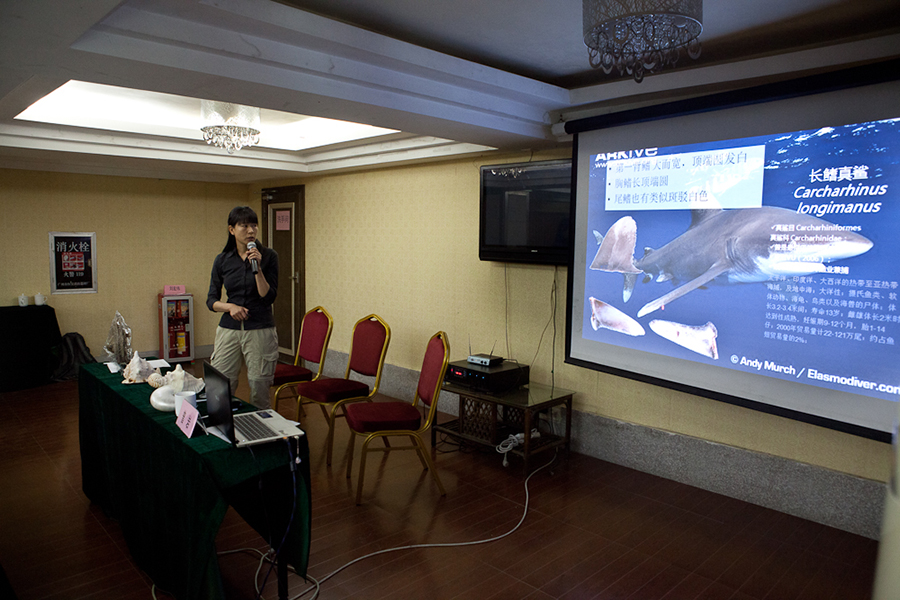

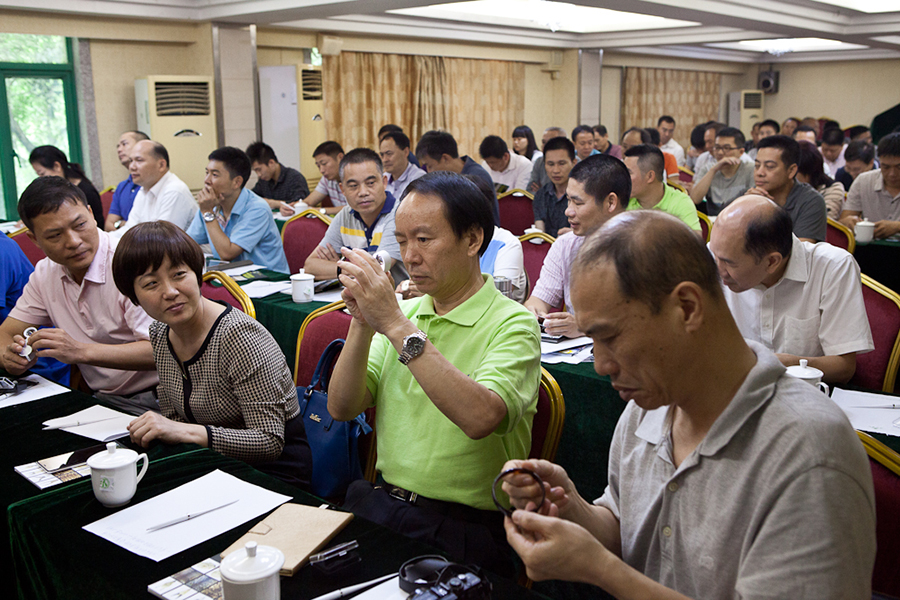

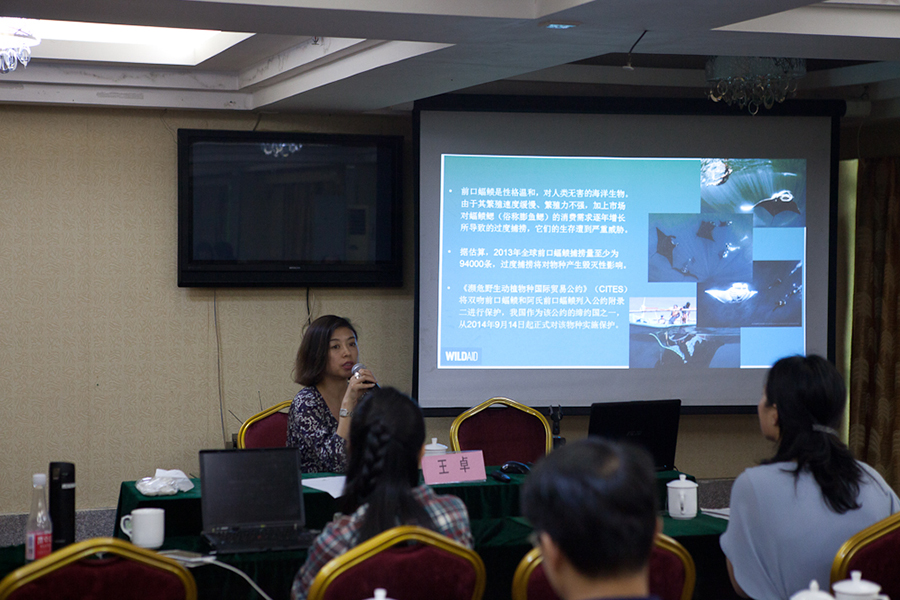

Further reading:
The Continuing Threat to Manta and Mobula Rays: 2013-2014 Market Surveys, Guangzhou, China
Stay in touch and get the latest WildAid updates.
SIGN UP
